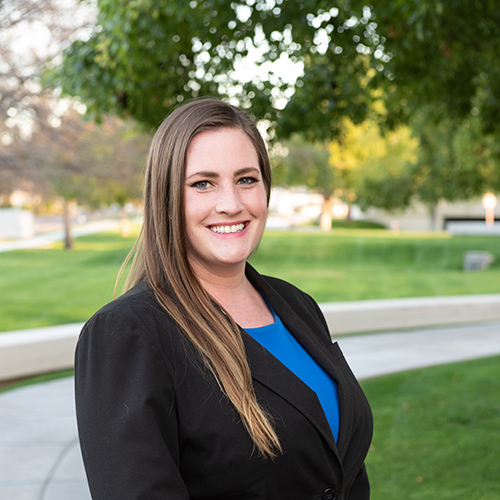Requirements for adopting as a stepparent in Arizona
In Arizona a stepparent can adopt their spouse’s child. This can provide permanency to a child who does not have a relationship with their other biological parent and many times has never had a relationship with the other parent.
In order to adopt as a stepparent, you must have been married to your spouse for at least one year and have your spouse’s consent to adopt. A stepparent must also have resided with the child for at least six (6) months prior to filing for adoption. If the minor child is over twelve (12) years old, the child must also consent to the adoption.
If the other biological parent consents to the adoption, it is a relatively simple process. If the other biological parent does not consent, then termination of parental rights is required prior to a Stepparent Adoption. See information on termination below.
Arizona allows for same-sex adoptions in addition to stepparents of the opposite sex.
In general, the adoptive parent will need to pass a CPS central registry records clearance check and obtain fingerprint clearance cards in order to adopt. A social study is not required.
The minor child’s attendance at the adoption hearing is required, unless waived by the court.
Termination of parental rights for adoption
If you need to terminate the parental rights of the other biological parent before step-parent adoption can take place, you fill need to file a Petition to Terminate, have the other parent served with the Petition and the Notice of Hearing.
Once the other parent has been served, he/she will be appointed an attorney to represent him/her and an initial hearing will be conducted.
If the other parent contests the termination, at least one other hearing will be scheduled; typically the trial.
Grounds for termination of parental rights
Grounds for termination are most frequently because of abandonment; however, there are other grounds to file in Arizona.
A.R.S. §8-533 states as follows in order to file for termination.
A. Any person or agency that has a legitimate interest in the welfare of a child, including, but not limited to, a relative, a foster parent, a physician, the department or a private licensed child welfare agency, may file a petition for the termination of the parent-child relationship alleging grounds contained in subsection B of this section.
B. Evidence sufficient to justify the termination of the parent-child relationship shall include any one of the following, and in considering any of the following grounds, the court shall also consider the best interests of the child:
1. That the parent has abandoned the child.
2. That the parent has neglected or wilfully abused a child. This abuse includes serious physical or emotional injury or situations in which the parent knew or reasonably should have known that a person was abusing or neglecting a child.
3. That the parent is unable to discharge parental responsibilities because of mental illness, mental deficiency or a history of chronic abuse of dangerous drugs, controlled substances or alcohol and there are reasonable grounds to believe that the condition will continue for a prolonged indeterminate period.
4. That the parent is deprived of civil liberties due to the conviction of a felony if the felony of which that parent was convicted is of such nature as to prove the unfitness of that parent to have future custody and control of the child, including murder of another child of the parent, manslaughter of another child of the parent or aiding or abetting or attempting, conspiring or soliciting to commit murder or manslaughter of another child of the parent, or if the sentence of that parent is of such length that the child will be deprived of a normal home for a period of years.
5. That the potential father failed to file a paternity action within thirty days of completion of service of notice as prescribed in section 8-106, subsection G.
6. That the putative father failed to file a notice of claim of paternity as prescribed in section 8-106.01.
7. That the parents have relinquished their rights to a child to an agency or have consented to the adoption.
8. That the child is being cared for in an out-of-home placement under the supervision of the juvenile court, the division or a licensed child welfare agency, that the agency responsible for the care of the child has made a diligent effort to provide appropriate reunification services and that one of the following circumstances exists:
(a) The child has been in an out-of-home placement for a cumulative total period of nine months or longer pursuant to court order or voluntary placement pursuant to section 8-806 and the parent has substantially neglected or wilfully refused to remedy the circumstances that cause the child to be in an out-of-home placement.
(b) The child who is under three years of age has been in an out-of-home placement for a cumulative total period of six months or longer pursuant to court order and the parent has substantially neglected or wilfully refused to remedy the circumstances that cause the child to be in an out-of-home placement, including refusal to participate in reunification services offered by the department.
(c) The child has been in an out-of-home placement for a cumulative total period of fifteen months or longer pursuant to court order or voluntary placement pursuant to section 8-806, the parent has been unable to remedy the circumstances that cause the child to be in an out-of-home placement and there is a substantial likelihood that the parent will not be capable of exercising proper and effective parental care and control in the near future.
9. That the identity of the parent is unknown and continues to be unknown following three months of diligent efforts to identify and locate the parent.
10. That the parent has had parental rights to another child terminated within the preceding two years for the same cause and is currently unable to discharge parental responsibilities due to the same cause.
11. That all of the following are true:
(a) The child was cared for in an out-of-home placement pursuant to court order.
(b) The agency responsible for the care of the child made diligent efforts to provide appropriate reunification services.
(c) The child, pursuant to court order, was returned to the legal custody of the parent from whom the child had been removed.
(d) Within eighteen months after the child was returned, pursuant to court order, the child was removed from that parent’s legal custody, the child is being cared for in an out-of-home placement under the supervision of the juvenile court, the division or a licensed child welfare agency and the parent is currently unable to discharge parental responsibilities.
C. Evidence considered by the court pursuant to subsection B of this section shall include any substantiated allegations of abuse or neglect committed in another jurisdiction.
D. In considering the grounds for termination prescribed in subsection B, paragraph 8 or 11 of this section, the court shall consider the availability of reunification services to the parent and the participation of the parent in these services.
E. In considering the grounds for termination prescribed in subsection B, paragraph 8 of this section, the court shall not consider the first sixty days of the initial out-of-home placement pursuant to section 8-806 in the cumulative total period.
F. The failure of an alleged parent who is not the child’s legal parent to take a test requested by the department or ordered by the court to determine if the person is the child’s natural parent is prima facie evidence of abandonment unless good cause is shown by the alleged parent for that failure.
If the other biological parent’s whereabouts are unknown, it can delay the adoption process and at times, a publication of the termination and/or notice of the adoption is necessary.
Brittany Labadie is the Managing Partner at Lewis Labadie. She has been working with Lewis Labadie since it opened. Her current focus is with adoption cases, including juvenile adoptions, adult adoptions, foster care adoptions, same-sex adoption, surrogacy adoptions, and when necessary termination of parental rights. She works throughout the State of Arizona.



